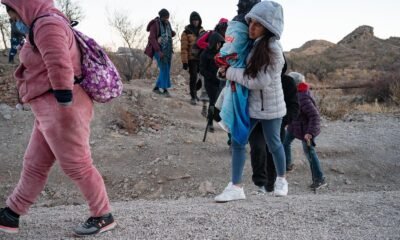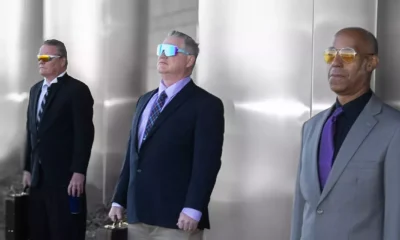Brian Murphy
US Supreme Court Greenlights Trump’s Controversial Third-Country Deportation Plan

WASHINGTON — The U.S. Supreme Court ruled on Monday to temporarily permit the Trump administration to proceed with deportations to third countries. This decision comes after a Massachusetts judge had previously barred such removals without proper notification.
In an unsigned order supported by six justices, the court granted the emergency request from the Trump administration, effectively staying a lower court’s ruling. This prior decision mandated that individuals slated for deportation be given an opportunity to express concerns about potential harm in the destination country.
Justice Sonia Sotomayor expressed strong dissent, stating, “In matters of life and death, it is best to proceed with caution.” Justices Elena Kagan and Ketanji Brown Jackson also aligned with her views.
Third-country removals occur when the immigrant’s home country refuses repatriation. The Supreme Court’s decision overturns a preliminary injunction issued by U.S. District Judge Brian Murphy, which required at least 15 days for individuals to challenge their removal if they worried about danger in the third country.
Early in May, Judge Murphy delayed the deportations of several men from Myanmar, Laos, Vietnam, Cuba, and Mexico who were set to be sent to South Sudan. After he determined their removal breached his initial order, these immigrants were rerouted to a U.S. military base in Djibouti for credible fear interviews.
The unsigned order effectively suspends Judge Murphy’s ruling while the case is pending. As the Trump administration continues its effort to execute mass deportations, the Supreme Court’s order facilitates their ability to remove immigrants to countries that their home nations do not accept.
Sotomayor emphasized that the decision undermines due process, highlighting the right of individuals on U.S. soil to defend themselves legally. She argued that the administration’s actions disregarded the lower court’s orders, particularly when several immigrants were removed to South Sudan, contrary to their home countries.
“By rewarding lawlessness, the Court once again undermines that foundational principle,” she remarked, questioning the rationale behind the court’s findings and the potential suffering that could result from these deportations.
Last updated 3:48 p.m., Jun. 23, 2025

















